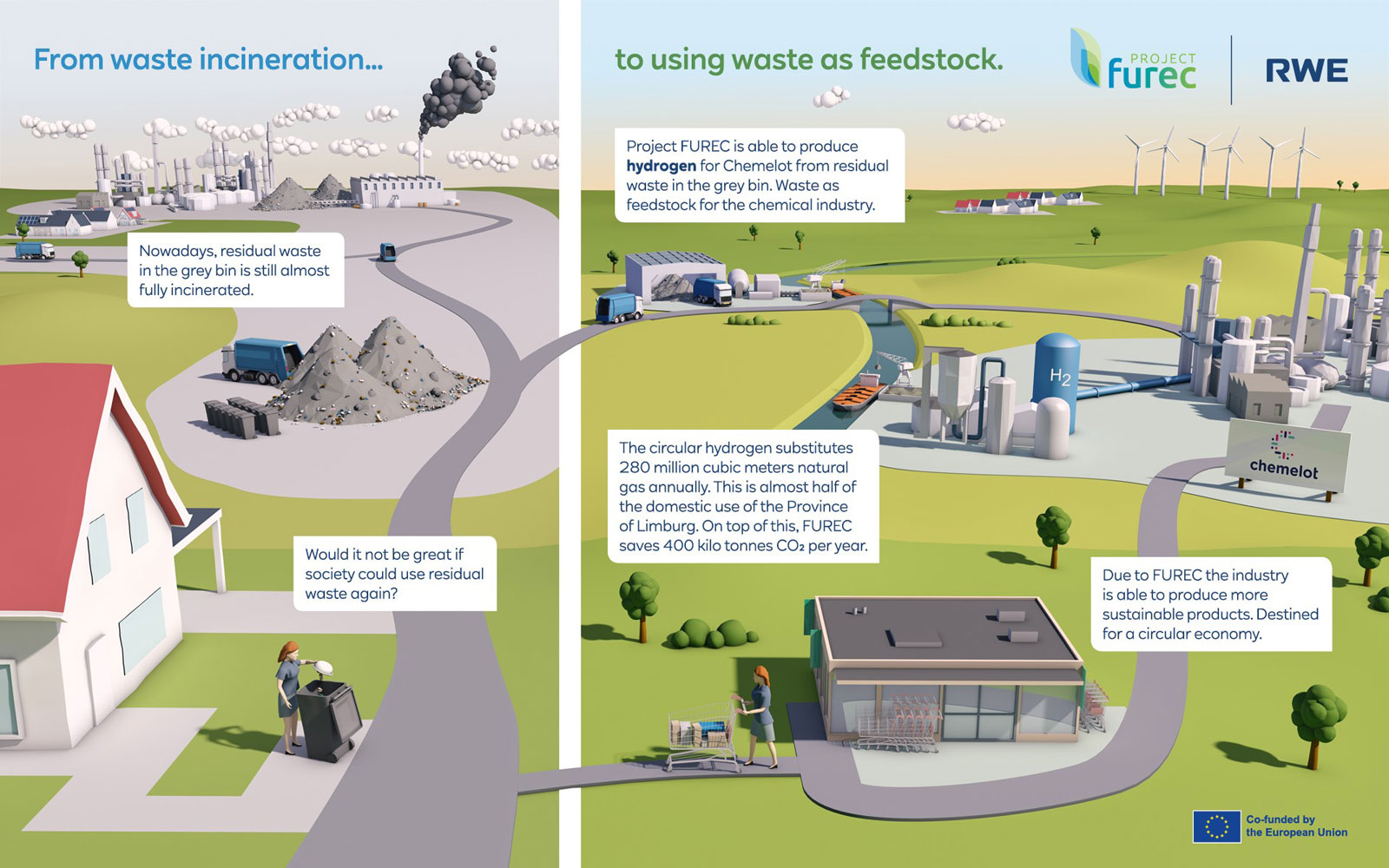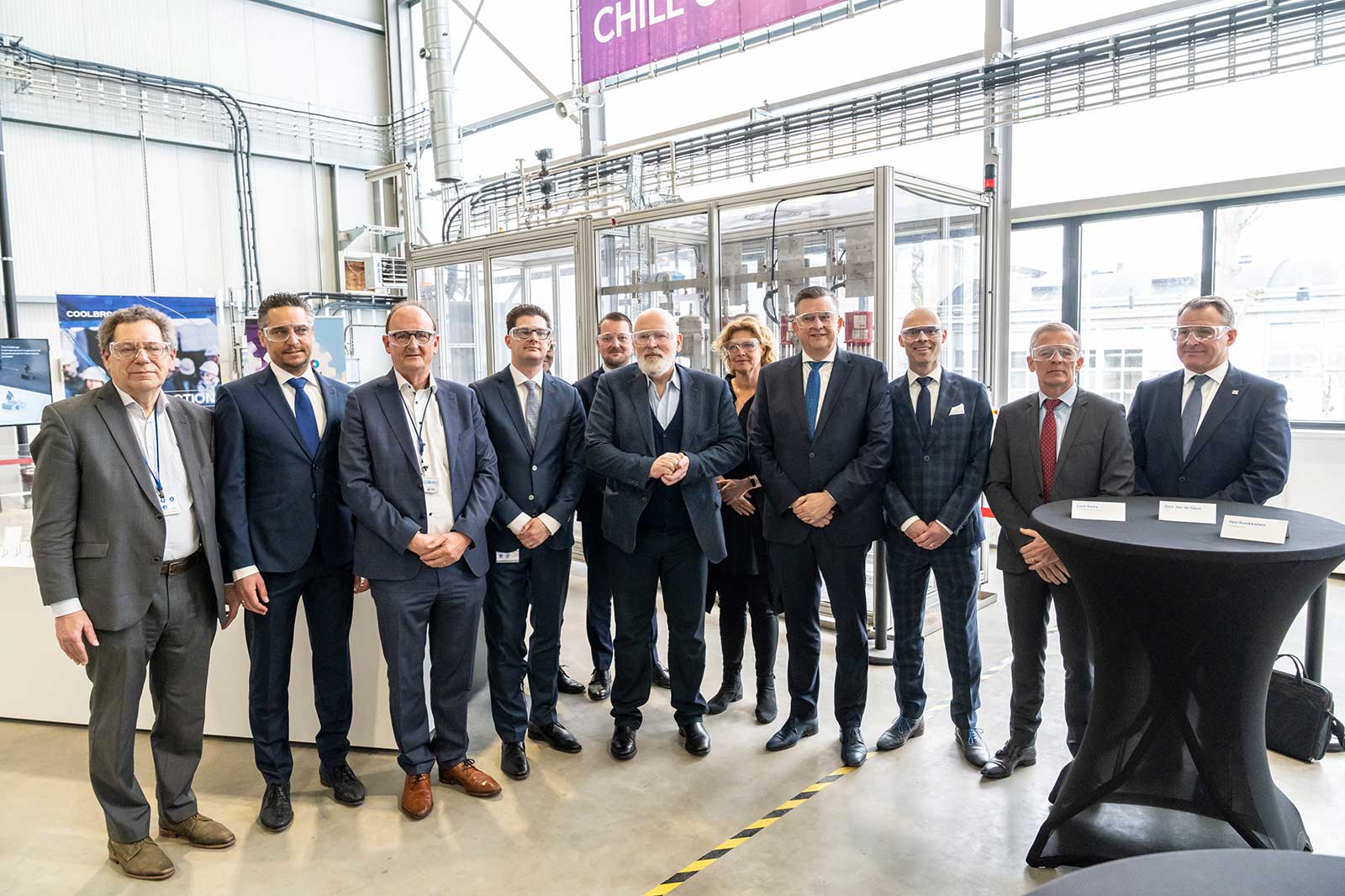The waste will come from the region, as it does now. Then it will be dried in Zevenellen and separated into metals (iron, aluminium and copper), stony materials (ceramics and stone) and a residual fraction. The residual fraction will be crushed and compressed into pellets that will then be transported to Chemelot by ship. The metals and stony material will be sold directly on the market as raw materials.
On arrival at the port of Stein, the pellets will be transshipped and transported to the plant at the Chemelot site where they will be completely converted, with hydrogen as the main product.




